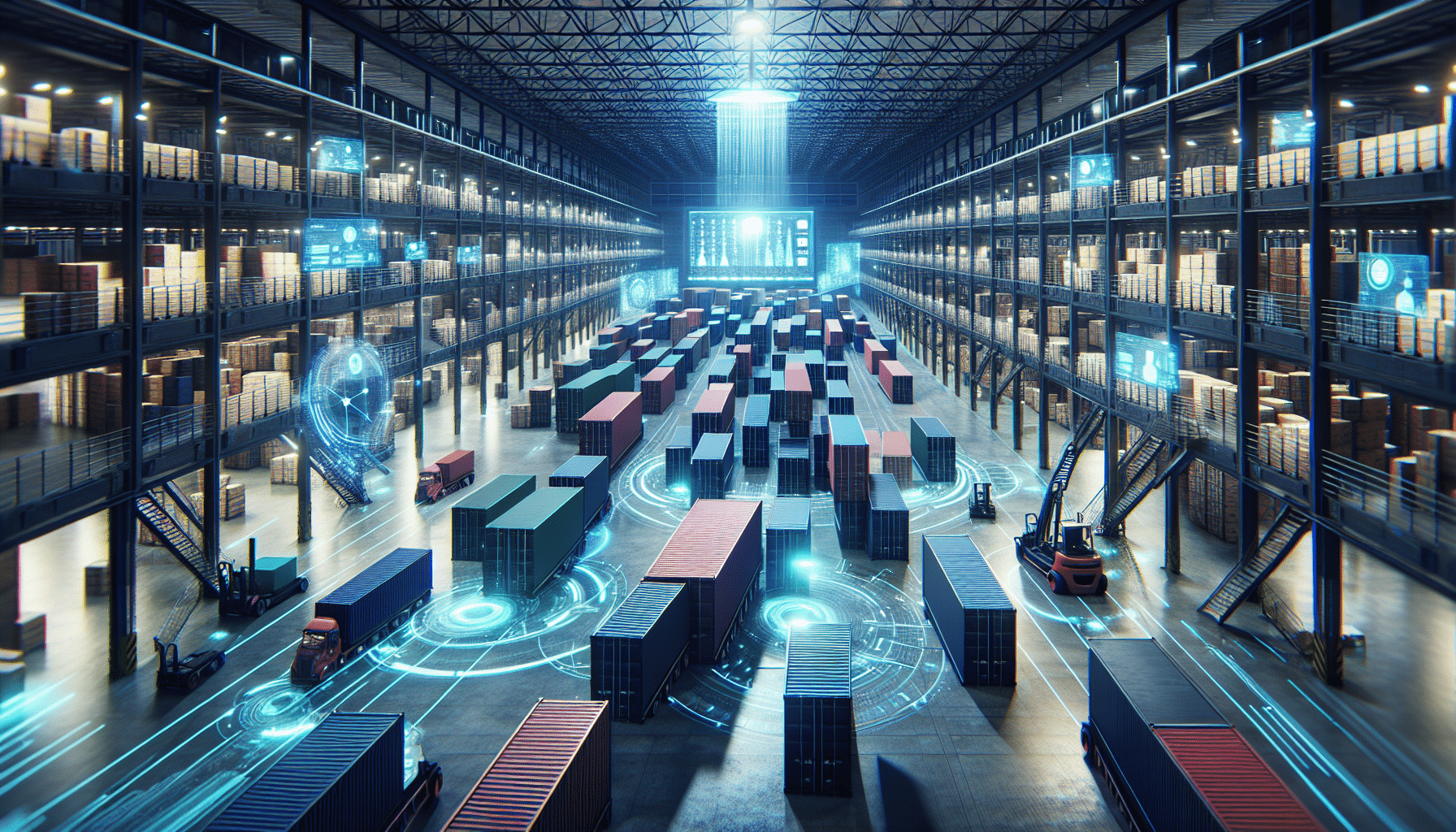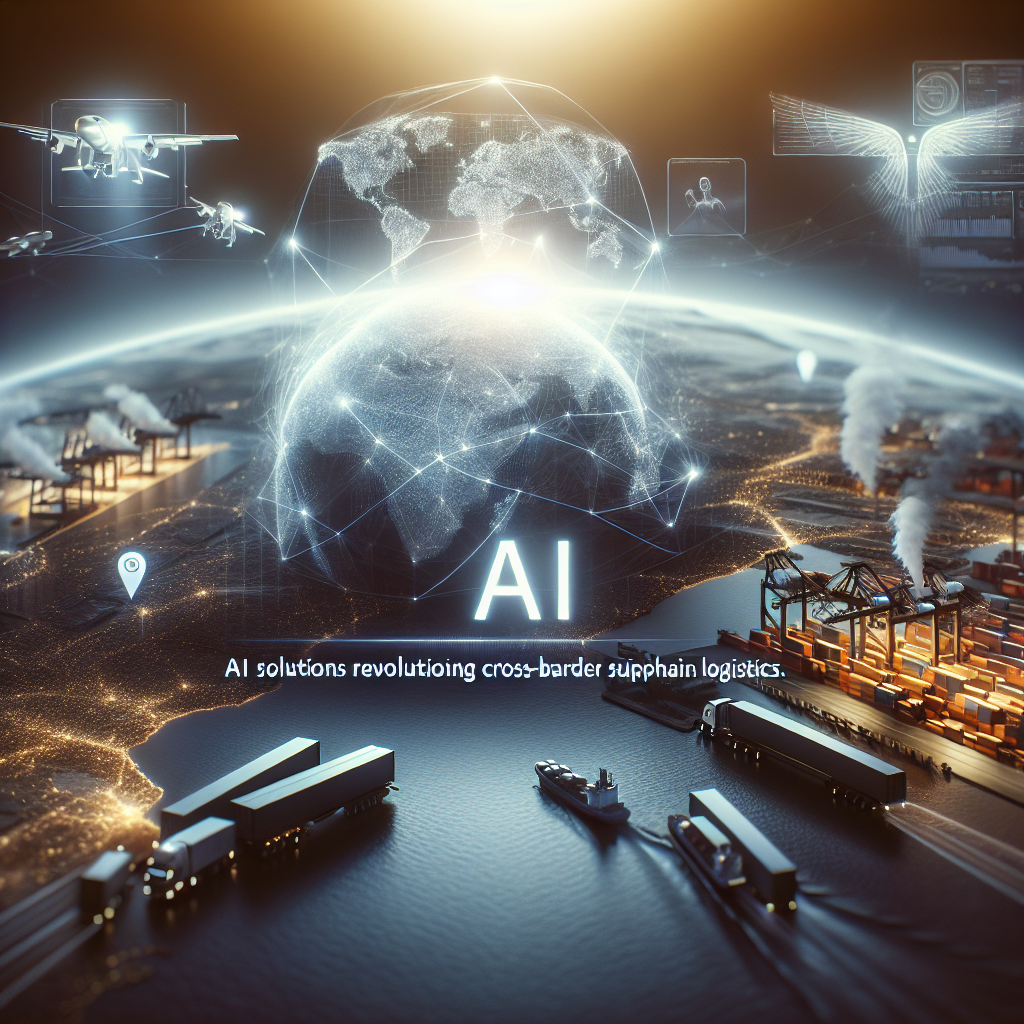Understanding AI Solutions in Cross-Border Supply Chain Logistics
AI solutions have become a cornerstone of modern supply chain management, providing innovators and leaders with capabilities that go beyond traditional methods. With the ability to analyse vast amounts of data, AI technologies facilitate smarter decision-making, highly efficient logistics processes, and the ability to anticipate disruptions. For businesses operating in cross-border logistics, these capabilities are crucial for managing complexity and meeting the demands of a global market. The application of AI solutions can transform various facets of supply chain logistics, from inventory management to demand forecasting.
The Role of AI in Supply Chain Visibility
One of the challenges in cross-border supply chain logistics is maintaining visibility throughout the entire process. AI solutions enhance visibility by integrating data from multiple sources, allowing companies to monitor their shipments in real-time. For instance, through machine learning algorithms, businesses can track shipments, predict potential delays, and respond proactively. This level of visibility not only reduces costs associated with inefficiencies but also improves customer satisfaction by providing precise delivery updates.
Predictive Analytics for Demand Forecasting
Another significant benefit of AI in logistics is its ability to improve demand forecasting through predictive analytics. By examining historical data and identifying trends, AI solutions help logistic managers better understand customer behaviour and anticipate future demands. For example, a retail company operating across Europe may use AI to analyse sales patterns, seasonal events, and economic indicators to optimise inventory levels across various distribution centres. This ensures that the right products are available at the right time, reducing excess stock and minimising stockouts.

Implementing AI Solutions: Steps to Success
Implementing AI solutions in cross-border logistics is not merely about adopting new technologies; it requires a strategic approach to ensure alignment with business objectives. The first step involves assessing current logistics operations to identify pain points where AI could provide significant improvements. For instance, organisations may find that automating routine processes or employing AI for freight auditing can yield substantial time and cost savings.
Data Preparation and Quality
The effectiveness of AI solutions heavily relies on the quality and breadth of data available. Companies must focus on gathering clean and relevant data from various sources, including suppliers, freight forwarders, and customer feedback. This data serves as the foundation for training AI models to predict outcomes accurately and offer insights. Data preparation should not be overlooked; organisations may need to invest in robust data management systems or partner with tech vendors to streamline this process effectively.
Cross-Functional Collaboration
A successful integration of AI solutions requires collaboration across different functions within the organisation. This means involving stakeholders from procurement, operations, and IT to ensure that AI tools are tailored to meet their specific needs. Engaging in workshops or cross-functional teams can foster a culture of collaboration and ensure buy-in from all parties involved. This unified approach not only enhances the implementation phase but also promotes ongoing support for AI initiatives.
“AI solutions are redefining logistics, enabling real-time decision-making that optimises operations.”
Logistics 4.0: Redefining the Supply Chain Landscape
Logistics 4.0 essentially refers to the fourth industrial revolution within supply chain management, characterised by the extensive use of digital technologies, including AI solutions. This new era is marked by smart factories, the Internet of Things (IoT), and data analytics, all of which work in tandem to create a seamless and highly responsive logistics environment. Companies embracing Logistics 4.0 principles are better positioned to adapt to changing market dynamics and consumer expectations.
The Integration of IoT and AI in Logistics
The combination of IoT devices and AI solutions offers remarkable opportunities for enhancing logistics processes. IoT devices can collect and transmit data related to inventory levels, shipment locations, and vehicle conditions in real time. AI then processes this data, enabling businesses to make informed decisions instantly. For example, if an IoT sensor detects a delay in a shipment due to traffic conditions, AI can suggest alternative routes or notify customers proactively about the potential delay. This interconnectivity not only optimises logistics operations but also enhances transparency and trust with customers.
Real-Time Decision-Making
A significant impact of integrating AI into supply chain logistics is the ability to enable real-time decision-making. By employing AI algorithms, businesses can analyse data continuously and adjust their logistics strategies accordingly. For instance, if there is a sudden surge in demand for a particular product during a holiday season, AI can automatically adjust inventory allocation across different centres to ensure availability. This agility leads to increased customer satisfaction and can significantly improve a company’s reputation in a competitive market.
Challenges of Integrating AI Solutions in Supply Chain Logistics
While the benefits of AI solutions in logistics are substantial, the integration process does come with various challenges. One of the primary concerns is the resistance to change within organisations. Employees who are accustomed to traditional methods may be hesitant to adopt AI technologies, fearing job loss or complexity. Therefore, it is crucial to facilitate training and promote an understanding of how AI can augment human capabilities rather than replace them.
Data Privacy and Security Considerations
Another challenge is ensuring data privacy and security. As AI solutions rely heavily on vast amounts of data, companies must implement robust security protocols to protect sensitive information. This includes investing in secure infrastructure and complying with regulations like GDPR. Building a strong foundation of trust with customers is essential, as any data breaches can have detrimental effects on a company’s reputation and customer relationships.
Cost Implications and Resource Allocation
Implementing AI solutions can require significant investment, not only in technology but also in talent acquisition. Companies must weigh these costs against the potential return on investment (ROI). It may necessitate reallocating resources or breaking down silos to justify the transition to AI-driven logistics solutions properly. Businesses should adopt a long-term outlook, understanding that the initial costs can lead to substantial savings and efficiencies down the road.
Case Studies: Successful Integration of AI in Logistics
Examining real-world examples of companies that have successfully integrated AI solutions into their supply chain logistics can provide valuable insights. For instance, consider a global retailer that adopted AI to improve its inventory management, resulting in a 20% reduction in overstock and a 30% enhancement in order fulfilment rates. By leveraging predictive analytics, the company could anticipate demand fluctuations and adjust its supply chain operations accordingly. This not only improved operational efficiency but also significantly boosted customer satisfaction rates.
Another Case: Transportation Optimisation
Similarly, a logistics provider may have integrated AI-driven route optimisation tools to enhance delivery times while reducing fuel consumption. By analysing traffic patterns and historical delivery data, the AI solutions could suggest the most efficient routes for drivers, leading to lower operational costs and improved service levels. In this instance, the company was able to achieve a 15% reduction in transportation costs within the first year of implementation, demonstrating the tangible benefits of leveraging AI in logistics.
Conclusion: The Future of AI in Cross-Border Logistics
As we delve deeper into the logistics landscape shaped by AI solutions, it becomes clear that the future of supply chain management will be vastly different from today. The integration of AI will not only streamline processes but will also facilitate a more resilient and responsive logistics network capable of adapting to dynamic market conditions. Companies that invest in AI technologies will find themselves better equipped to thrive in the increasingly complex world of cross-border supply chain logistics, ultimately shaping the future of how products are transported, stored, and delivered worldwide. By embracing these advancements, businesses can ensure a competitive advantage while meeting growing customer expectations.
Discover how integrating AI into your supply chain can transform your logistics operations. Learn more about our services.
Frequently Asked Questions
How can AI improve cross-border supply chain logistics?
- AI can improve cross-border supply chain logistics by optimizing route planning, automating compliance processes, and enhancing demand forecasting, leading to cost savings and improved efficiency.








